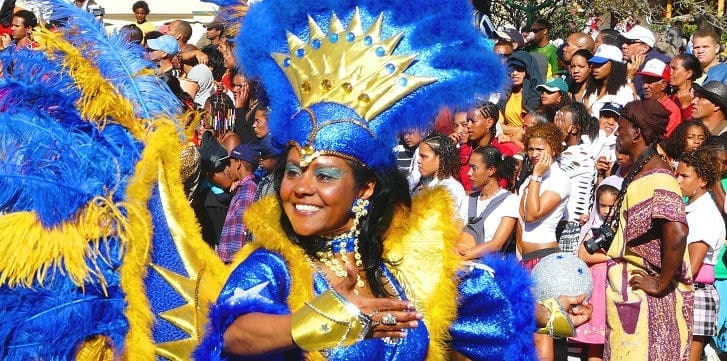Cabo Verde is an archipelago formed by 10 islands of which 9 are inhabited. Cultures differ between them and language is the one that stands out the most. Each island has a different Creole or dialect but the official language is Portuguese, which is used in schools, public administration, the press and publications.
Cabo Verdean culture is very rich. With different modalities and areas, language, music, crafts, literature, and religion are just some elements that are part, not only of the culture but also of the traditions existing in this small country in the middle of the Atlantic Ocean. Cabo Verde’s culture is heavily influenced by its unique music, such as the morna, a melancholy sound harking back to the days of slavery, batuko, a more jovial genre which gets everybody dancing and funana, an intriguing vocal tune which vibrates throughout the islands. The archipelago’s most famous export is undoubtedly Cesaria Evora, the world renowned morna artist. Cabo Verde has also produced a number of talented poets and authors including Frusoni Sergio, Tavares Eugenio and Manuel Lopes. Numerous sports, such as uril and bisca are popular throughout the country and tend to attract large crowds.

There always seems to be a Cabo Verde holiday or festival going on. Whether it’s a religious ceremony or an excuse to spend time drinking and dining with family and friends, festivals on the archipelago are always a colorful experience well worth checking out. Carnival in February is a truly memorable time, while the Sao Joao celebration sees hundreds participate in processionals, folk dancing and street parties.
Cabo Verde Carnival
February sees the most colorful and spectacular festival of the island’s calendar and is one of the best times of the year to visit Cabo Verde. No matter where you go, it is virtually impossible to escape the party and endless music in full swing. The most elaborate and hedonistic celebrations take place on the streets of Praia and Mindelo where everyone pulls out their fancy costumes and puts away their inhibitions. The dancing, drinking and debauchery goes on for days, with music, fireworks and huge parades.
Kriol Jazz Festival
Started in 2009, the Kriol Jazz Festival is held in the capital of Praia every April and attracts artists from around Cabo Verde and abroad. The event promotes Cabo Verde’s rich musical heritage, which hails from Africa, the Caribbean and Europe. Performances are held at locations around the city and get the community moving to the music all weekend long.
The Festival of Sao Joao
A passionate affair which incorporates the country’s traditional pastimes, bonfires are ignited to ward off evil spirits and bring fertility to the fields, while dancing, singing and street parties take place in San Antonio June 24th every year.
Cabo Verde Independence Day
A raucous event which is celebrated on every island, Independence Day festivities are held July 5, commemorating the day the country gained its freedom from Portugal. Colorful celebrations complete with serious drinking the local favorite grogue and feasting are the norm and the fun carries through into the evening. It’s a great time to visit and experience the pride and light-heartedness of the locals.
Sal Music Festival
Held for a weekend in September, the enjoyable Cabo Verde music scene has evolved into an exciting and fast-growing event over the years, attracting local and international artists. A fusion of many different styles and influences, it’s a great spectacle. Cabo Verdean people from across the islands, as well as tourists head to Santa Maria Beach to pitch tents and setup camp for the weekend. When the sun goes down, bonfires are lit and the party rages through the night.
https://www.iexplore.com/articles/travel-guides/africa/cabo-verde/festivals-and-events

